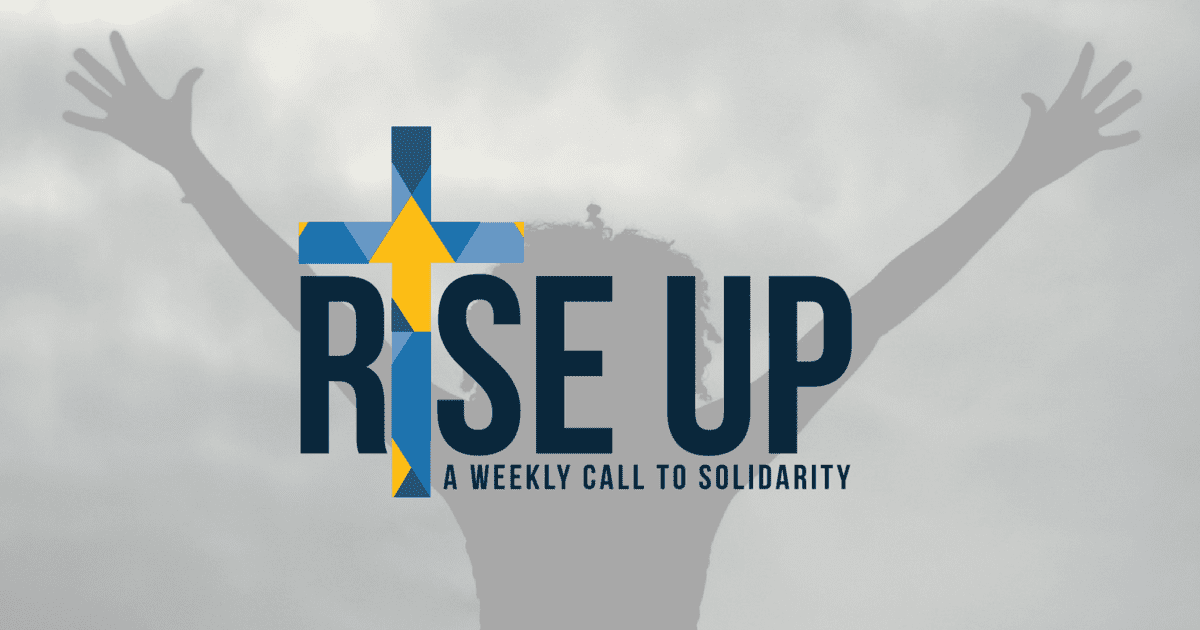The Most Terrible Part of the Story
BY KATIE LACZ | December 30, 2019
Sunday’s Readings – Feast of the Holy Family

I don’t want to hear this story.
I want to linger in the soft light of the nativity, with joyful, wondrous faces gazing in awe at the newborn Jesus. I want, as a mother of young children, to stay knowingly with the Holy Family, experiencing with them the exhausted wonder of the early days of being a family of three.
Instead, only days after Christmas, we are thrust into exile and terror.

Look closely at the Scriptures in the lectionary. In the canonical reading you likely heard yesterday, we skip from verse 15 to verse 19. But it is important that we bear witness to the whole story, no matter how painful. Here are the omitted verses, in bold, with the verses we heard immediately before and after them on Sunday.
Joseph rose and took the child and his mother by night and departed for Egypt.
He stayed there until the death of Herod, that what the Lord had said through the prophet might be fulfilled, “Out of Egypt I called my son.”
When Herod realized that he had been deceived by the magi, he became furious.
He ordered the massacre of all the boys in Bethlehem and its vicinity two years old and under, in accordance with the time he had ascertained from the magi.
Then was fulfilled what had been said through Jeremiah the prophet:
“A voice was heard in Ramah,
sobbing and loud lamentation;
Rachel weeping for her children,
and she would not be consoled,
since they were no more.”
When Herod had died, behold,
the angel of the Lord appeared in a dream
to Joseph in Egypt and said,
“Rise, take the child and his mother and go to the land of Israel,
for those who sought the child’s life are dead.”
Why do we excise the most painful part of this story? We know the warning, the fleeing, the return—but we skip over the massacre of the children.
We don’t want to know. Such things are beyond what I want to bear imagining. And I have the privilege of simply imagining, not experiencing firsthand.
Even now, there are families fleeing in the night from those who would wish to kill them and their children. (And we welcome them with separation and cages.) Even now, there are newly formed families who are exiled in unfamiliar countries, instead of forming their lives together in the safety and shelter of home. Even now, there are mothers keening over the bodies of their babies.
Whatever the message of Christmas is, it contains this truth: God’s love is so deep, so intent, that God insists on being with us in the worst the world offers. God does not skip past the most terrible part of the story. The Incarnation is not the Incarnation without suffering—it would simply be play-acting at being human. The Incarnation means that God-with-us, Emmanuel, bears what seems unbearable with us. Not to tell us that such horror is part of God’s plan, but that God’s love holds the capacity to transform and redeem it.
There have been so many images I have wanted to turn away from this year, so many ways we kill our innocents: at dangerous border crossings, in war, through systemic racism, in the gaping inequality that leaves some to starve while others throw food away. But we are called to stay and be present not by a God who demands it from a distance, but from God who became a baby bundled and carried among refugees from violence. God is present where we are present, which is to say, in the nativity and in the massacre. Such is the mystery; such is God’s love.
Katie Lacz is a mother, an M.Div., and a spiritual director living outside Boulder, CO. She currently works as Program Associate for the Women’s Ordination Conference. A former Jesuit Volunteer (Raleigh ’06-’07), she continues to seek the magis while living in the messy and beautiful work of raising her two small children.









Leave a Reply
Want to join the discussion?Feel free to contribute!